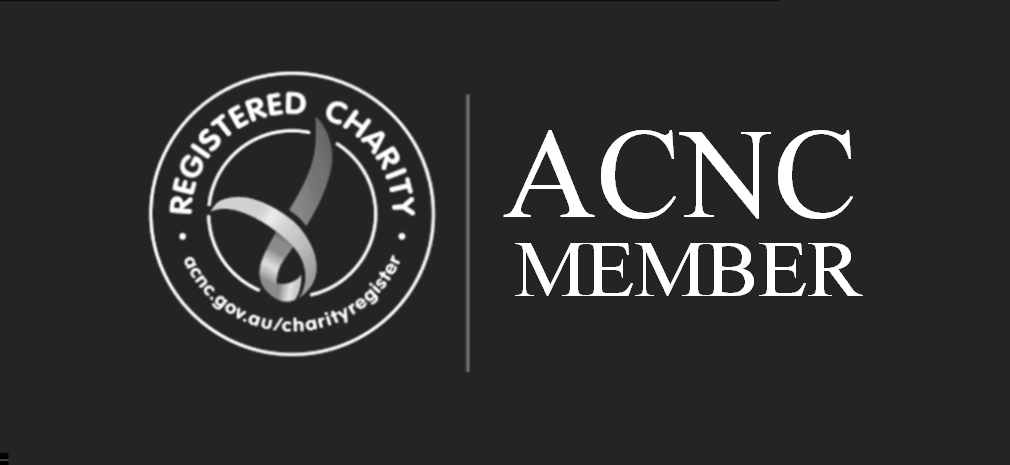- The health and safety of our members and volunteers on field trips to the South Pacific is of utmost importance.
2. DAISI is committed to ensuring the safety of its members and volunteers when attending field trips in the South Pacific, realising there are many occupation health and safety risks attached with working in public hospitals in the topics of the South Pacific. It is essential that all members and volunteers attend briefing sessions prior to volunteering in the South Pacific where issues relating to protection of staff safety will be discussed. It is also essential that all members and volunteers attend debriefing sessions, where pertinent feedback is obtained about the overall experience, and any adverse events that have occurred. All DAISI members and volunteers are also sent a feedback questionnaire, asking members to rate their experience, and to identify if any adverse injury or illness occurred, and whether contact by a member of the DAISI executive/board is required.
3. APPLICATION PROCESS
All members and volunteers undergo a vetting process, skills and past experience and medical and psychiatric history is assessed, and where medical information and next of kin contact details are obtained. This is printed on the reverse side for member and volunteers ID cards. This information is also kept by the Secretary in the head office database, should it be required.
4. BRIEFING SESSIONS
All volunteers and members must attend briefing sessions, usually the week prior to departure, where a member of DAISI’s Exec/Board with experience in that particular field, with local knowledge should also attend, and discuss the below precautionary measure to ensure the safe return of all members and volunteers, and address concerns and answer all relevant questions. DAISI’s staff safety and security policy, including evacuation plan (if needed) will be discussed at this briefing session.
5. DEBRIEFING
All DAISI members must attend debriefing sessions held usually on the last day at the hospital/country where volunteering took place. This session will be supervised by a senior experienced member of the DAISI team, to allow constructive feedback and advice.
6. FEEDBACK FORMS
The DAISI feedback form is emailed to all members or volunteers in the first week after returning from a field trip to the South Pacific.
7. CONTACT OF MEMBERS/VOLUNTEERS BY DAISI EXECUTIVE
A member of the DAISI executive will make contact (usually by phone ) of any DAISI member or volunteer who requests it in their feedback form, and any DAISI member or volunteer who suffered an adverse event or illness. All adverse events and illness must be presented at the DAISI Executive/Board meeting usually held every three months, but a minimum of twice yearly.
8. ESSENTIAL ADVICE GIVEN AT BRIEFING SESSIONS
The below advice to reduce the risk of an adverse event, injury or sickness is provided to all members and volunteers at the initial Briefing session.
9. TYPES OF INJURIES
Physical and psychological harm can result from a field trip to the South Pacific. Methods for reducing this risk are suggested below.
10. PREPARATON PRIOR TO DEPARTING
Register your trip with DFAT Smart Traveller, and check this site for listing of areas best avoided due to illness or political unrest or natural disaster.
- Register your trip with DFAT Smart Traveller, and check this site for listing of areas best avoided due to illness or political unrest or natural disaster.
- Provide an itinerary to your next of kin, with contact details and planned contact dates.
- Know where the Australian Consulate is located in the Country you visit, and have the email and phone number readily available.
- Photocopy and keep in safe spot a copy of all your travel documents (passport, visa, immunisation record) in case of theft.
- Discuss specific concerns you may have with the DAISI Executive/Board or team leader.
- Have your medications packed safely in moisture resistant containers.
Ensure all vaccinations are up to date and carry proof of vaccination. - Provide an itinerary to your next of kin, with contact details and planned contact dates.
- Know where the Australian Consulate is located in the Country you visit, and have the email and phone number readily available.
- Photocopy and keep in safe spot a copy of all your travel documents (passport, visa, immunisation record) in case of theft.
- Discuss specific concerns you may have with the DAISI Executive/Board or team leader.
- Have your medications packed safely in moisture resistant containers.
- Ensure all vaccinations are up to date and carry proof of vaccination.
11. VACCINATION
Make sure that your vaccination status is known and up to date.
Vaccination is mandatory for COVID, hepatitis A & B, cholera, typhoid, polio, tuberculosis, measles, mumps, rubella, chickenpox, tetanus, Japanese encephalitis. You may also benefit from getting advice on vaccination against rabies.
12. MALARIA PROPHYLAXIS
Know the risk of malaria in the Country you are travelling to and Chloroquine resistance. Visit a GP with vaccination qualifications to obtain advice on the best anti-malarial prophylaxis. Doxycylin 100mg daily is frequently advised, but there is a risk of photosensitivity. Malarone (Atovaquone/proguanil) needs to be started one week prior to travel to be effective and continued one week after return. Malaria prophylaxis is not safe in pregnancy. Malaria is increasingly resistant to Chloroquine, and side effects following scuba diving are common making it the least popular malaria prophylaxis.
13. MALARIA PREVENTION
In addition to anti-malarials, consider use of DEET (N,N-diethyl-m-toluamide) based cream or spray such as RID or Aerogard. Light long sleeved clothing and mosquito nets are a must. Consider if you accommodation has fans or air-conditioning, which also reduce your risk of mosquito bites.
14. COVID
Be familiar with DAISI’s COVID precautions policy, and complete the compulsory COVID screening questionnaire 7 days before departure.
Familarise yourself with COVID entry and exit requirements and quarantine laws.
15. DENGUE FEVER
There is no vaccination or effective treatment for Dengue fever currently approved in Australia. Visit travel smart
16. DIRTY WATER
Vaccination against Hepatitis A, Cholera and Typhoid is recommended. There is no vaccination against travellers diarrhoea, and bottled or boiled water is recommended.
17. TRAVEL INSURANCE
Always purchase travel insurance.
18. ALTITUDE SICKNESS
Never scuba dive within 24 hours of arriving or departing by flight, as this could results in “The Bends”. Some antimalarials (e.g. Doxycycline) increase your risk of altitude sickness.
19. HOSPITALS
Only work in designated hospitals that have a current MoU with DAISI.
20. SCOPE OF PRACTICE
Only work within your scope of practice. You will be more likely to make errors if you practice outside your scope of practice, and medicolegally will not be covered. Medical students must be supervised at all times by a suitably trained doctor.
21. PSYCHOLOGICAL HARM
We recommend travelling within a supportive group to reduce your risks of an adverse event such as kidnapping, assault or rape and possible psychological harm. As a minimum travel two by two, especially in remote areas and after hours. Dress in a manner that is culturally appropriate, and that does not draw attention or ridicule. Avoid flashing cash in public, and always show situational awareness. If withdrawing money from an ATM or bank, keep the money concealed and have someone accompany you. Attend all briefs and debriefing sessions, so that if an adverse event is encountered, psychological support can be provided.
22. IMPRISONMENT
Always have a valid prescription or letter from you doctor explaining all medication taken through customs. Ensure your passport is valid 6 months from your departure date, and that you have the appropriate visa. Be aware of local laws that might be quite different to Australian laws on various relating to sexuality, alcohol and drug used, and the criticism of government on social media. Ensure that you have local registration to practice your specialty.
23. RECREATIONAL ACTIVITIES
It is always tempting to turn a volunteer trip into a bit of a holiday, and engage in recreational activities while. Remember to do this safely, as the medical facilities may not be able to provide you the medical or surgical attention you need if you sustain an injury. Always use protective equipment when required/available such as life vests (when travelling by water) helmets (by bike) or seat belts (by road).
24. OTHER INJURIES
Heat stroke, fatigue and dehydration can occur in the tropical hot humid environment so always carry sun protection, bottled or boiled water, and avoid working long hours without a break.
Antifungals, and proper footware is also need to avoid foot injuries. ,
25. PERSONAL PROTECTIVE EQUIPMENT
The supply of PPEs in the hospital you visit cannot always be assured, and therefore it is recommended that members and volunteers bring with them their own personal supply of gloves, hand sanitiser, goggles and masks to last the duration of your tirp.
26. SHARPS/NEEDLESTIK INJURIES
Sharps containers are not always abundant in the hospital in the South Pacific. Multi-use ampoules are sometimes still in practice by local health practitioners. Remember to apply the same needle stick and blood borne virus precautions on field trips that you apply back home, and report any needle stick injury or blood exposure immediately to your trip leader.
27. NOTIFICATIONOF ADVERSE EVENT OR PERSONAL INJURY
It is never too late to notify your trip leader, of DAISI’s Executive/Board of an adverse event or personal injury sustained while at work on a volunteer trip to the South Pacific. This will allow the appropriate investigations and treatment to be implemented, and will also allow for root cause analysis, and planning to prevent a similar episode from occurring.



